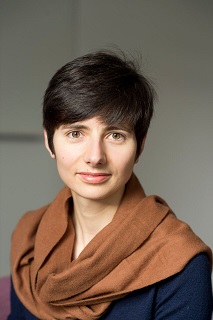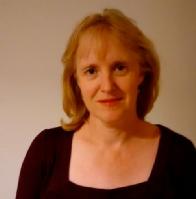IER News & blogs
Credentials and self-reported skill gain do not measure the same
 As a part of the LEGACY project, Dr Heike Behle recently presented a paper in which two ways to measure learning gain were critically assessed: Credentials and self-assessed improvement of specific skills.
As a part of the LEGACY project, Dr Heike Behle recently presented a paper in which two ways to measure learning gain were critically assessed: Credentials and self-assessed improvement of specific skills.
Both ways have drawbacks: Credentials can be an effective way of measuring student learning within a particular class, since most institutions have a scaled grading system already in place. It is problematic, however, to use across classes and institutions and it does not measure the ‘distance travelled’ during higher education. On the other hand, self-assessed improvement of skills will always be subjective and will differ according to individuals’ personality and their personal and HE-related circumstances such as gender and subject studied. It is also important to notice that both data is censored, i.e. improvement is not unlimited.
Using Futuretrack data, Heike compared both ways and found that those who increased their learning gain using credentials are less likely to assess their skills highly, both variable correlate negatively. The findings are currently being prepared for publication. Reported in THES.
New report - Graduates in non-graduate occupations
A recent IER report prepared for HEFCE and SRHE IER's Dr Heike Behle compares the early pathways of graduates from two leaving cohorts: those who graduated in 1999 (‘class of 1999’) and those who graduated from three year courses in 2009 and from four year courses in 2010 ('class of 2009/2010'). It shows that the proportion of employed graduates working in non-graduate jobs during their first year after graduation has remained high with approximately 36 per cent of all employed graduates from three year courses and, respectively 30 per cent of all employed graduates from four year courses working in non-graduate jobs fifteen months after graduation.
Behle, H. (2016) Graduates in non-graduate occupations (Report prepared for HEFCE and SRHE). London: Higher Education Funding Council for England.
Expert seminar: What is a graduate job?
 The increase in the proportion of graduates working outside traditional areas of graduate employment, changes in technology and the labour market, and the shift in the definitions of skill towards encompassing interpersonal abilities, have redefined the concept of ‘graduate’ jobs. This seminar provides a unique opportunity for expert discussion of the developments in graduate job classifications and their contributions to understanding the recent changes in the graduate labour market. The seminar is being organised by Dr Daria Luchinskaya, who joined IER in September.
The increase in the proportion of graduates working outside traditional areas of graduate employment, changes in technology and the labour market, and the shift in the definitions of skill towards encompassing interpersonal abilities, have redefined the concept of ‘graduate’ jobs. This seminar provides a unique opportunity for expert discussion of the developments in graduate job classifications and their contributions to understanding the recent changes in the graduate labour market. The seminar is being organised by Dr Daria Luchinskaya, who joined IER in September.
More information and to register for the seminar on 9 November.
Robert Lindley Scholarship in Employment Policy Research
 Following his retirement as Director of IER, the Robert Lindley Scholarship in Employment Policy Research has just been established. This scholarship is intended to encourage cross-over between the academic and policy-maker communities. The first recipient is IER's PhD student Lorraine Johnson. Her research interest lies in late career transition with a focus on the experiences of professional women.
Following his retirement as Director of IER, the Robert Lindley Scholarship in Employment Policy Research has just been established. This scholarship is intended to encourage cross-over between the academic and policy-maker communities. The first recipient is IER's PhD student Lorraine Johnson. Her research interest lies in late career transition with a focus on the experiences of professional women.
Career ‘transition’ and ‘adaptability’ have been significant themes running through Lorraine's own career to date. In the last 5 years she has transitioned from Further Education College Lecturer, Secondary Pathways Adviser (developing web based career transition tools) and more recently Project Manager for a United Kingdom Commission for Employment and Skills (UKCES) project. Her earlier career provided plenty of opportunity to practice “transition” initiated by a move from London to Birmingham to take up a promotion to Senior Careers Adviser responsible for project work and then further promotion to trainer. During this period she also undertook two career breaks to support her partner's career development. The first involved living in Tsukuba Science City, Japan, whilst home teaching her two children. The second moved her to Tokyo, working at the British School whilst studying for a Masters in Education.
Futuretrack Findings
Findings from Stage 4 of the HECSU-funded Futuretrack study are highlighted in a special issue of Graduate Market Trends (GMT), published by HECSU (February 2013). An IER research team, led by Professor Kate Purcell, followed the progression of the 2005/2006 cohort of applicants to higher education from application to graduation. Data from the Futuretrack study has raised important questions about the types of employment obtained by graduates, finances, career opportunities and further study.
http://www.hecsu.ac.uk/current_projects_graduate_market_trends.htm
Further details about the research can be found on the IER website at: www.warwick.ac.uk/futuretrack , where PDFs of the project’s published Reports and Working Papers can be accessed and downloaded, as can PDFs of the online questionnaires used for each stage of the longitudinal research.
, where PDFs of the project’s published Reports and Working Papers can be accessed and downloaded, as can PDFs of the online questionnaires used for each stage of the longitudinal research.
Professor Purcell notes: "This is the most ambitious and comprehensive research ever undertaken to explore the relationship between higher education and access to opportunity. The data we have collected is extraordinarily rich, the published reports produced so far only show the tip of the iceberg . There is much more to come..!”
